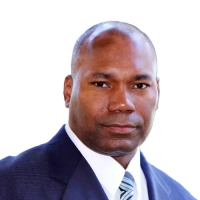

You need more than just your down payment and closing costs. Many mortgage lenders also require reserves to buy a home. Things to know:
- Reserves are savings balances that will be there after you close on your home purchase
- Lenders like to see emergency funds that can pay your housing expenses even if your income stops
- Reserves are measured in months — the number of months of housing costs you’d be able to cover with your savings
Assume that after completing your home purchase, you’ll have $6,000 in savings. If your housing costs (principal, interest, taxes and insurance) are $1,500 a month, you have four months’ reserves. $6,000 / $1,500 = 4.
What are mortgage reserves?
Reserves are a very curious part of the loan application process. The fact is that most residential borrowers do not “need” reserves to buy a home, but at the same time it is very smart to have them.
When lenders originate a mortgage, they want as little risk as possible. This is why they have minimum requirements for credit scores and down payments. It’s also why they limit the amount of debt you can carry for your particular income.
For less-than-perfect applicants, reserves can make the difference between getting approved and being turned down.
To further decrease their risk, lenders prefer that borrowers have some sort of fallback if things go wrong. For instance, if you lose your job, your income declines or you experience a medical emergency.
The term “reserves,” simply means cash you can get your hands on fast if you need it.
When do you need reserves?
You typically don’t need reserves to buy a home. As long as you buy a primary residence with a solid application. However, with blemished credit, a second home, a multi-unit property, or investment real estate, you probably will.
This would seem to leave out reserve worries for single-family prime residences, but maybe not. You may need reserves if you want to cash out some home equity. That’s a little ironic, because if you’re cashing out equity it usually means you need cash — not that you have all these cash reserves lying around.
And Fannie Mae makes it very clear that you can’t be taking cash out because you need the money.
You may also need reserves for a primary residence if your credit score is below 660 or your down payment is on the small side. This is not universal, however — if Lender Smith kicks you to the curb, Lender Jones may put down the red carpet. It pays to shop.
Reserve requirements vary
According to Fannie Mae, “Liquid reserves are those financial assets that are available to a borrower after a loan closes.” The amount of reserves is calculated in months.
Lenders first look at your projected monthly housing cost. This figure includes at least mortgage principal, mortgage interest, property taxes, and property insurance. Other costs can include flood insurance and HOA fees.
Let’s say that your total monthly housing costs will be $1,000. If a lender says you need two months of reserves to buy a home, you must have $2,000. If your monthly housing cost is $1,500 then you would need $3,000.
Some programs require six to 12 months reserves — especially for those who are self-employed or on commission, or those buying rental properties or with many properties already financed.
Acceptable sources of reserves
The lender is happy if you happen to have the required reserves in cash. For a lot of borrowers, this is a high bar after a down payment and closing costs.
The good news is that lenders see liquid assets as anything that can be quickly converted into cash including stocks, bonds, mutual funds, the cash value of an insurance policy, accessible retirement funds, and certificates of deposit.
Alternatively, there are some things which may look like liquid assets, but don’t count toward reserves, including borrowed money, money from a cash-out real estate settlement, and real estate equity.
A twist on borrowed funds
At some point, the line between borrowed funds and liquid assets begins to blur. For instance, if you took out a five-year personal loan a year ago, and deposited the proceeds into your savings account, how long do you have to separate it from savings when listing your assets and debts?
When to “borrowed funds” become “acceptable” reserves to buy a home?
The answer is usually two or three months. You disclose the personal loan as a debt, and the lender counts its payment in your debt-to-income ratios. And you count the proceeds of that loan in your savings. Once this occurs, the funds are known as “seasoned.”
Reserves can lower your mortgage rate
Today’s mortgage rates are not the same for everyone. If extra reserves qualifies you for a better program, you could pay less than you would for a less-desirable home loan. It’s worth a try if you’re on the edge.

